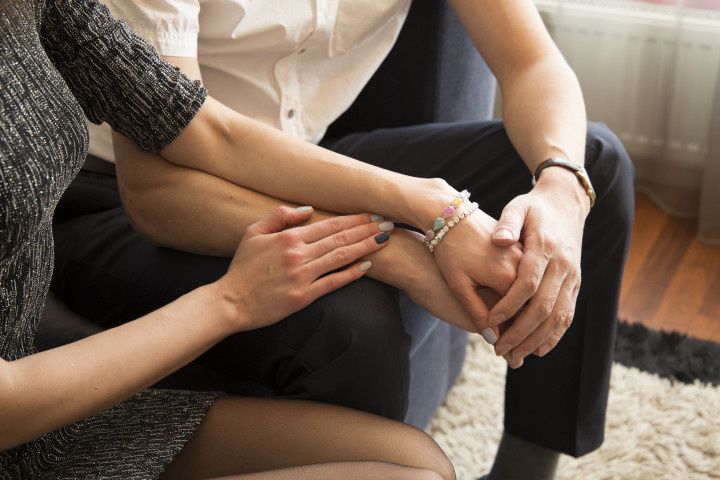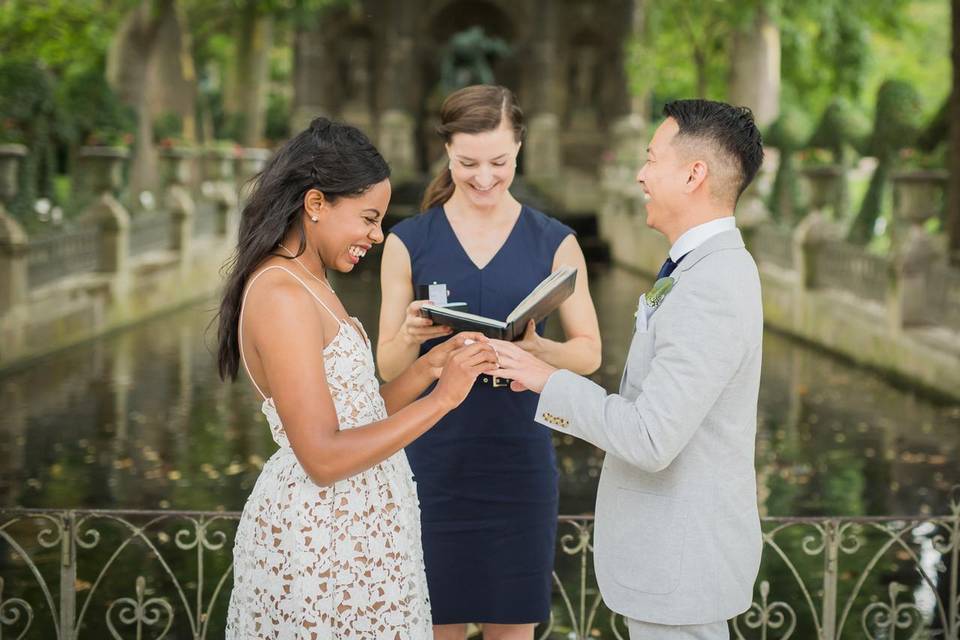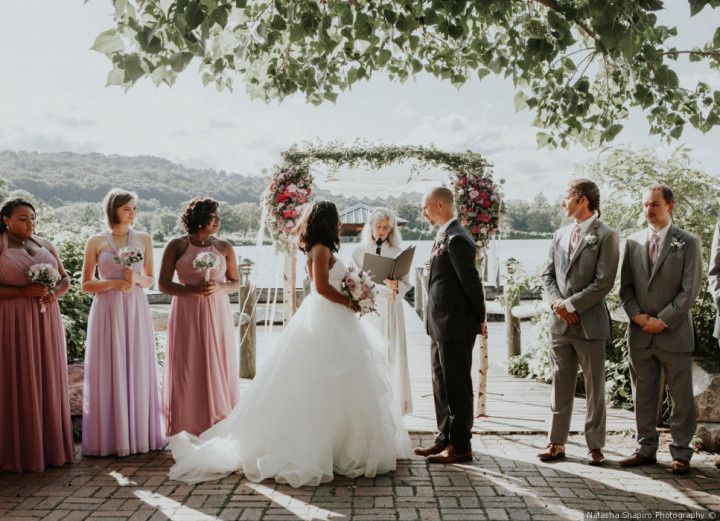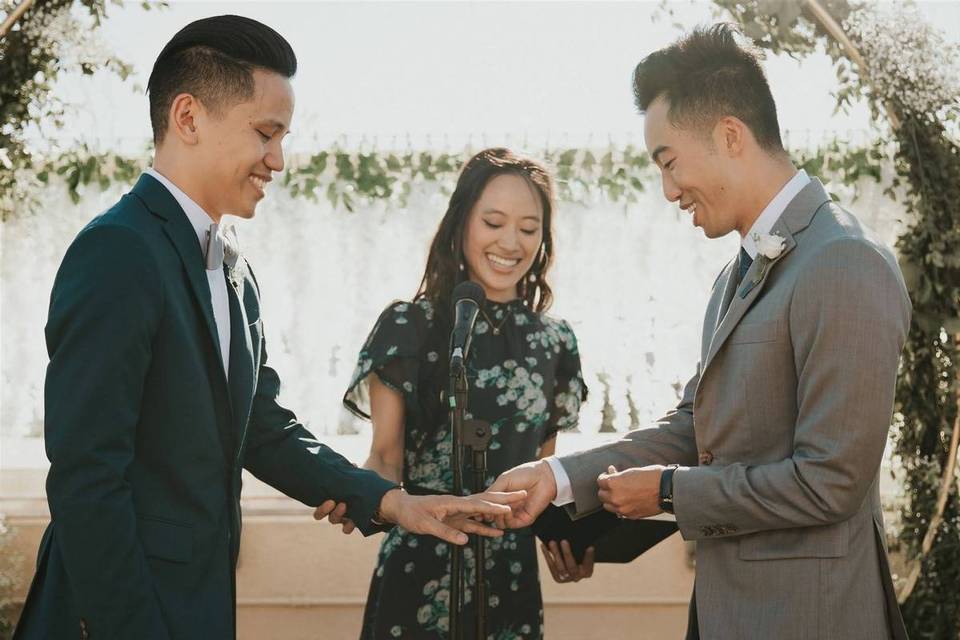“What I Really Learned in Premarital Counseling”
While many couples think of premarital counseling as a chore, you may be surprised about what you learn about your partner—and yourself.


Most couples associate “premarital counseling” or “couples therapy” with a failing relationship, but the opposite is, in fact, true—some of the strongest relationships are the ones willing to seek out couple’s therapy, according to experts. “Premarital counseling is a powerful, life-changing activity that can help couples create a strong, happy marriage that brings happiness, health, wealth and well-being not only to the two people, but to their children, their grandchildren and several generations after them,” explains Jessica Cline, MSW, LCSW, psychotherapist and owner of Cline Counseling & Consulting, LLC. “Premarital counseling involves getting to know yourself and your partner, learning how your similarities and differences will affect your happiness and how to work with those differences and to consciously create a roadmap for your life together.”
Though choosing to take the premarital counseling plunge is not always easy, these inspiring stories of what real couples have learned through their sessions may help motivate you and your partner.
It helped up better navigate some emotionally-charged topics.
“As part of the requirements to be married in my church, my fiance and I took part in Pre-Cana counseling. This process consisted of three small group sessions with other engaged Catholic couples led by various members of our congregation, as well as the completion of a very detailed questionnaire called FOCCUS. FOCCUS is not a test, nor is it a personality profile, but rather a tool to foster conversation between couples on topics from finances to spirituality. We also used a really helpful workbook in our small group sessions by John M. V. Midgley & Susan Vollmer Midgley called 'A Decision to Love' that I would highly recommend to couples of all faiths. It really helped us to better navigate some emotionally charged subjects and prepared us to face some of the challenges ahead of us as newlyweds.” —Kristin Ann, from Bayville, New York
We learned how to fight fair.
“My wife and I participated in counseling both before and during our marriage. We’ve been together since high school, and we’re always interested in finding ways to improve our relationship. The most important thing we learned, that comes back to us over and over, is how to fight fair. Fighting is not a bad thing in and of itself, but rehashing old issues or taking low blows just to win and tear the other person down isn’t fair. We were once told to, in every argument, ask yourself privately if you’re willing to stake your whole marriage on that position you’re taking—if it would really be worth giving it all up. It helps to put all the small annoyances and bad moods that are normal in a healthy marriage into perspective and reminds you that it’s possible to disagree without being disagreeable." —Mark H., from Toronto, Canada
We learned to understand our different communication styles.
"Years before getting married, my husband and I were having issues with communication. I came from a family where problems and feelings were always talked about and he came from a family where problems were never acknowledged, so we constantly clashed. We realized we weren't able to resolve our issues in alone, let alone talk about them, and that was a major source of dissatisfaction for both of us. When you're consumed with hurt, anger, dissatisfaction, frustration and just pure unhappiness, you can't necessarily see things for what they are. Once we both could see our part in the issue, we started exploring the issue deeper. We learned to understand why we each have a different style of communication, by talking about our specific childhood experiences and previous romantic relationships. We learned that our actions were a cycle, and more specifically, a pain cycle. Being stuck in this cycle is what was preventing us from moving forward. Our counselor helped us recognize that cycle, and once we did, it was incredibly clear why we were in the place that we were. We saw real results from premarital counseling, but it wasn't immediate, and it wasn't without a lot of pain and tears. We had to open up old wounds and explore places in our past we didn't necessarily want to revisit, before we could fully make a change." —Katrina T. from Pittsburgh, Pennsylvania
I discovered some personal, deep-rooted issues.
"I went through premarital counseling for nine weeks and I took away some life-changing nuggets. The counseling provided what marriage is really about in terms of more than just having feelings of love and butterflies. In addition, I discovered some deep-rooted issues that I didn't know were there—issues that could have potentially ruined my marriage if not dealt with properly. Communication was a huge discussion point, since that’s part of the foundation for a strong marriage. Premarital counseling a true eye-opener that focuses on the individual and learning to adapt together as life partners." —Paula O., from West Palm Beach, Florida
It forced us to talk about things that make us feel uncomfortable.
"My husband and I did premarital counseling and read the book Things I Wish I'd Known Before We Got Married by Gary Chapman. Premarital counseling was a great opportunity for us to think ahead into the life we wanted to build together—not just the nuts and bolts of merging finances, calendars and appliances, but thinking through our expectations of each other and our marriage. It forced us to talk about things that make us feel uncomfortable, which was good practice. The biggest takeaway that we still use today is to think about little ways to make the other person happy each day—winning an argument isn't the goal (and actually isn't winning), and talking about little things before they become big things is important.” —Cait S., Boulder, Colorado
We gained a better grasp on reality versus our expectations.
“Premarital counseling was the best decision we made after our engagement. Over the course of four sessions we talked through all kinds of things: faith (and how that would guide our marriage), finances (and vowed to check in with each other for purchases over $50), sex (our expectations and reality) and the biggest of all, communication. This December we’ll celebrate four years married and, I must admit, we still use the strategies and tools we learned during those premarital counseling sessions daily and we’ve never communicated with each other better. I cannot recommend this enough to engaged couples!” —Katie B., Jackson, Tennessee








